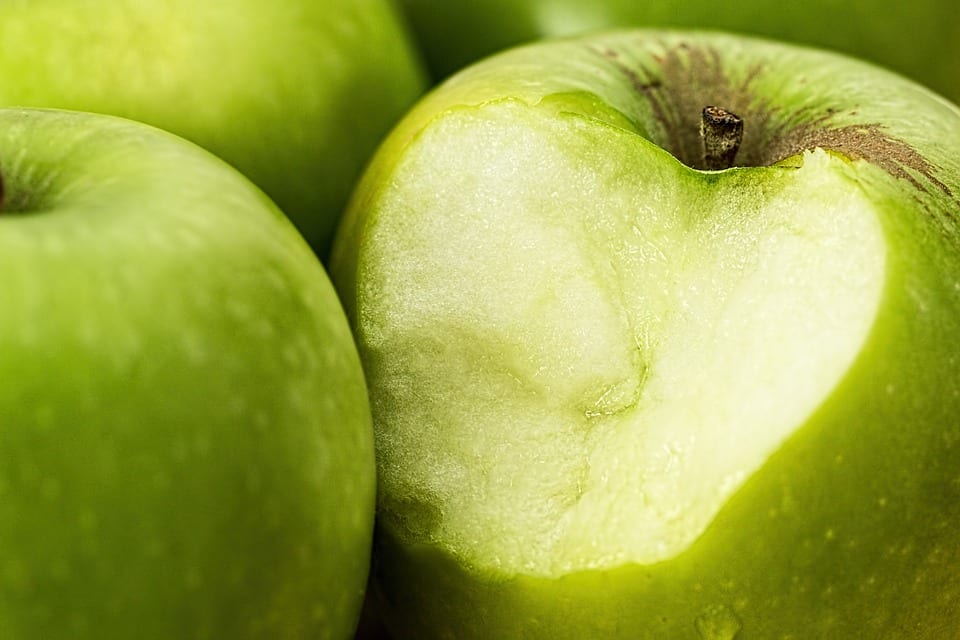In 2012, food waste was the most abundant kind of waste produced in America (see chart below), beating even plastic and paper. This has led the Environmental Protection Agency (EPA) to choose food recovery as their theme for this year's Earth Week. Food waste affects multiple areas of the environment. Wasting food means wasting our resources- the food itself and all the stuff (like water, fertilizers, fuel and electricity) that went behind producing it.

How many times have you thrown away a half-eaten apple thinking “it's biodegradable anyway� Turns out that even biodegradable trash can still be harmful in the environment. Morton Barlaz from the North Carolina State University and his team studied the decomposition of different types of waste in American landfills. They found that waste that decomposes faster also produces the most methane.
Methane is the deadliest of the greenhouse gases- having almost 30 times more potential than carbon dioxide to trap heat. Excess waste also means that more land has to be cleared of trees to give way for landfills. Both these problems support the fact that it would be much better to direct food waste towards compost pits than to just let them sit in landfills. It is interesting to note that biodegradable products are created with the purpose of directing them towards composting, because otherwise they will enter the landfills and produce methane. However, as of right now, only five percent of food waste is directed towards composting.
Bigger initiatives are desperately needed. Fortunately, the University of Georgia has already started taking efforts at the local level. One example is the UGA Office of Sustainability's composting program, which aims to make composting easier for everyone on campus. Our university is also doing a great job recycling all pre- and post-consumer food scraps from UGA dining halls. The University of Georgia also has a campus in Costa Rica, where they strive to be maintain a negative carbon footprint through several sustainability efforts. For example, pigs can be fed almost any kind of food, since they are omnivores. The campus kitchen directs all leftovers and scraps towards the large pig farm on campus grounds.
Another great initiative taken by UGA over the past year has been making all our dining halls “tray-lessâ€. In the spring semester of 2015, Food Services held a week-long trayless experiment in Snelling Dining Commons that resulted in a 27 % decrease in food waste, along with a 16.4 % decrease in water wasted. This prompted them to completely remove the trays, and after almost two semesters, I have realized how little food I have been wasting. Trays allow us to carry more food to our tables and so I would find myself picking up that extra piece of cake that I would end up being too full for. That doesn't happen as often any more- apparent from the fact that UGA Food Services reports a preservation of roughly 107,142 pounds of food.
The average American household loses $1560 annually by purchasing food they end up throwing away.
We can all do so much more to help with this problem. Don't let food go bad- shop responsibly by setting boundaries, use better food storage, and take more effort to check the expiration dates on food products and consume them before the date. The average American household loses $1560 annually by purchasing food they end up throwing away. A report by the Harvard Food Law and Policy Clinic (FLPC) and the Natural Resources Defense Council (NRDC) talks about the confusion about “use byâ€, “best by†and “sell by†dates on food items. No federal regulations are in place for labels like these, and different state laws make the system very confusing. For example, sometimes the “sell by†date is displayed on the food item and consumers mistake it for the expiration date, thus wasting perfectly good food.
There are also lots of ways you can direct excess food towards those in need. For example, The Campus Kitchens at UGA is a student group that transforms unused food from dining halls, grocery stores, and farms into meals that are distributed to agencies alleviating food insecurity in Athens, GA. Small efforts taken on the individual and community level are only the beginning; food waste is a multi-faceted issue and needs to be dealt with on a national and global scale as well- hopefully in the near future.
About the Author
 Sunishka “Sonny†Thakur is a sophomore majoring in Genetics. She channels her passion for science, literacy and world culture through campus involvement in women in science, UGA Science Olympiad Outreach, First Book UGA and World Ambassadors. She can be reached via email: sunishka.thakur25@uga.edu. More from Sunishka Thakur. Sunishka “Sonny†Thakur is a sophomore majoring in Genetics. She channels her passion for science, literacy and world culture through campus involvement in women in science, UGA Science Olympiad Outreach, First Book UGA and World Ambassadors. She can be reached via email: sunishka.thakur25@uga.edu. More from Sunishka Thakur. |
About the Author
- athenssciencecafehttps://athensscienceobserver.com/author/athenssciencecafe/April 17, 2020
- athenssciencecafehttps://athensscienceobserver.com/author/athenssciencecafe/April 12, 2020
- athenssciencecafehttps://athensscienceobserver.com/author/athenssciencecafe/April 3, 2020
- athenssciencecafehttps://athensscienceobserver.com/author/athenssciencecafe/March 30, 2020







